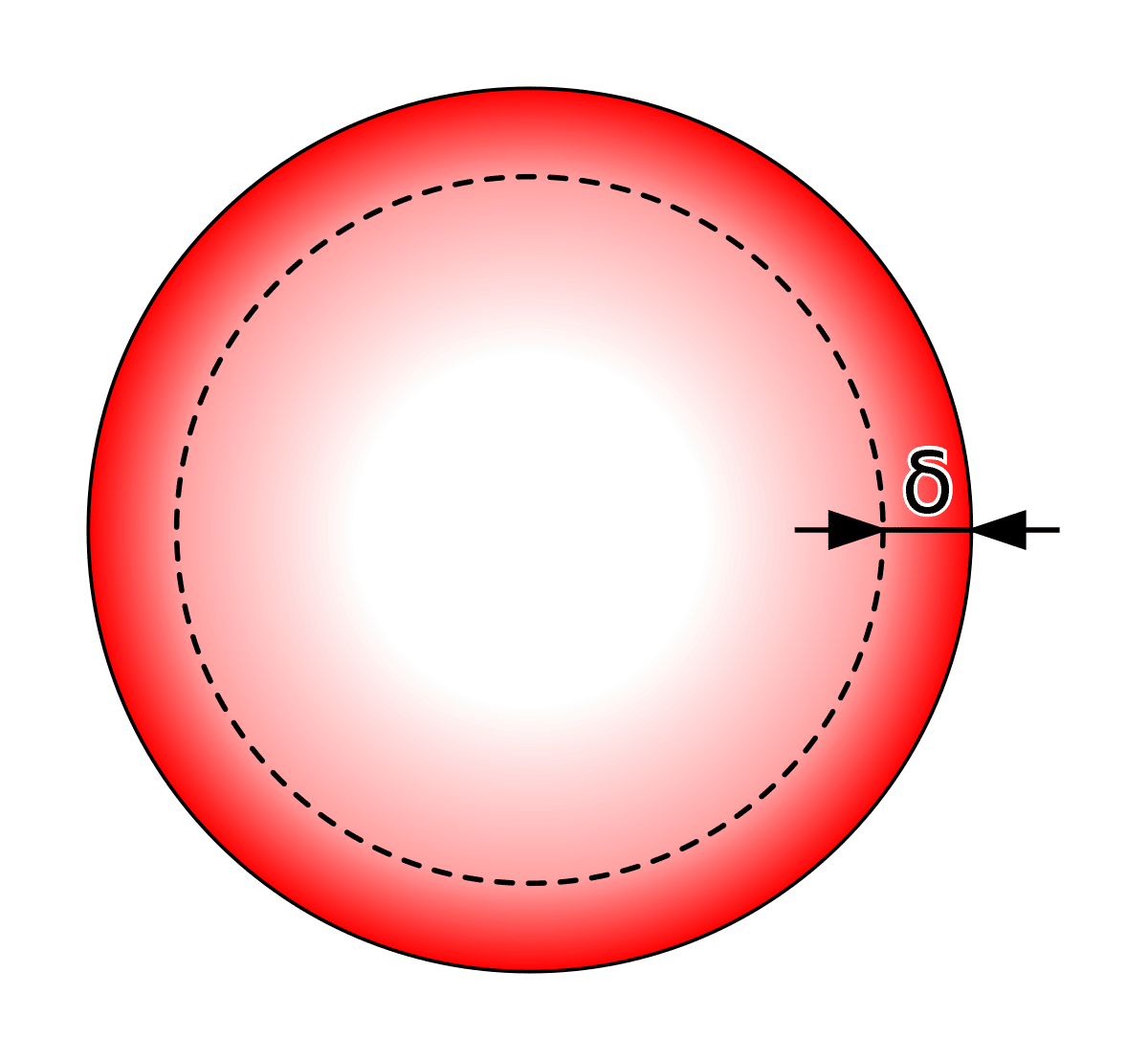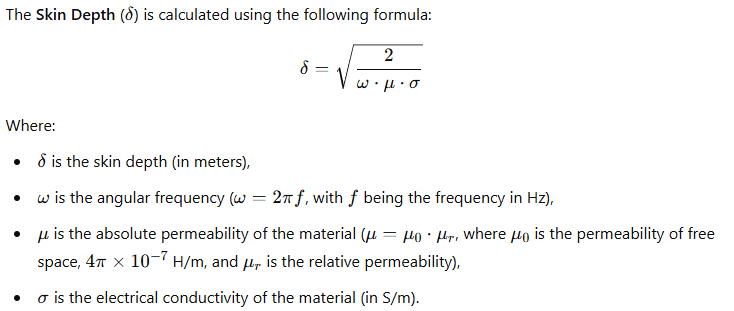This Calculator is designed to calculate skin depth based on the conductive material being used and the frequency of the signal.
Inputs
Outputs

In AC circuits and high-frequency applications, the concept of skin depth is essential for understanding how electric currents distribute themselves within a conductor. The skin depth refers to the distance from the surface of a conductor at which the current density falls to approximately 37% of its value at the surface. As the frequency of the current increases, the current tends to flow closer to the surface, reducing the effective area for conduction and increasing the resistance.
This Free Online Skin Depth Calculator helps engineers and designers easily compute the skin depth of a conductor based on its material properties and the operating frequency.
Why Use This Calculator?
The Skin Depth Calculator offers multiple benefits for engineers and circuit designers:
- Accurate and Fast Calculations: Quickly determines the skin depth, saving time and reducing manual calculation errors.
- Material Flexibility: Allows users to input specific material properties like conductivity and relative permeability, making it applicable for various types of conductors.
- Frequency Versatility: Suitable for a wide range of frequencies, from low-frequency AC power systems to high-frequency RF and microwave applications.
- Optimizes Design: Helps in understanding current distribution within conductors, which is critical for designing efficient high-frequency circuits and minimizing power loss.
- Free and User-Friendly: The tool is available online for free and does not require any software installation, providing a convenient solution for quick calculations.
How to Use the Skin Depth Calculator
The Free Online Skin Depth Calculator is designed for ease of use. Follow these steps:
- Enter the Frequency (Hz): Specify the frequency of the current flowing through the conductor.
- Input the Material Conductivity (S/m): Provide the conductivity of the material (e.g., copper, aluminum).
- Input the Relative Permeability (μr): Enter the relative permeability of the material, which indicates how it reacts to magnetic fields.
- Click Calculate: Once you enter the required parameters, click on the “Calculate” button to get the skin depth value.
The calculator instantly provides the skin depth, allowing you to understand how deep the current penetrates into the conductor at the given frequency.
Formula:

This formula highlights the inverse relationship between frequency and skin depth, showing that as the frequency increases, the skin depth decreases.
Applications of the Skin Depth Calculator
The Skin Depth Calculator is valuable in several high-frequency and AC applications:
- RF and Microwave Design: In RF and microwave circuits, understanding the skin depth helps in designing transmission lines and antennas, as it affects conductor losses at high frequencies.
- Power Electronics: In AC power systems, the skin effect can cause increased resistance in conductors, affecting efficiency and necessitating the use of larger or specially designed conductors.
- PCB Design: For high-speed PCB traces, designers need to account for the skin effect to minimize signal loss and ensure proper signal integrity.
- Inductor and Transformer Design: Skin depth considerations are important when designing inductors and transformers for high-frequency applications to reduce core and winding losses.
- Electromagnetic Shielding: The concept of skin depth is used to design effective electromagnetic shields that block high-frequency interference.












